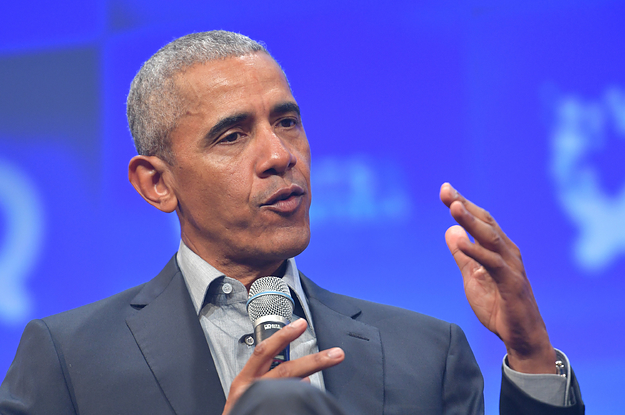Barack Obama, who had the biggest grassroots organization in American history and intentionally sabotaged it, ceding activist space to what would become the tea party, lectures on activism:
Former president Barack Obama discussed the dangers of callout culture at an event Tuesday, cautioning young people against the idea that activism is "to be as judgmental as possible" about others. The former president was being interviewed by actor and activist Yara Shahidi, at the Obama Foundation Summit in Chicago.
Obama told Shahidi, who is currently attending Harvard University with his eldest daughter Malia, that publicly shaming people on Twitter is "not activism," offering up an example.
"Like, if I tweet or hashtag about how you didn't do something right or used the wrong verb. Then, I can sit back and feel pretty good about myself because, man, you see how woke I was?" he said. "You know, that's not activism. That's not bringing about change. If all you're doing is casting stones, you're probably not going to get that far."
He went on to say that he sees callout culture being especially prevalent on college campuses. "I do get a sense sometimes now among certain young people — and this is accelerated by social media — there is this sense sometimes of 'the way of me making change is to be as judgmental as possible about other people,'" he said.
Obama went on to say, "This idea of purity, and you're never compromised, and you're always politically woke and all that stuff, you should get over that quickly." Calling for more nuance in difficult conversations, Obama said, "The world is messy, there are ambiguities. People who do really good stuff have flaws. People who you are fighting may love their kids and share certain things with you."
"If all you're doing is casting stones, you're probably not going to get that far," the former president said.

www.buzzfeednews.com


